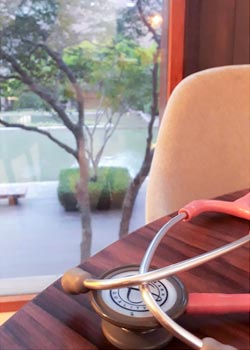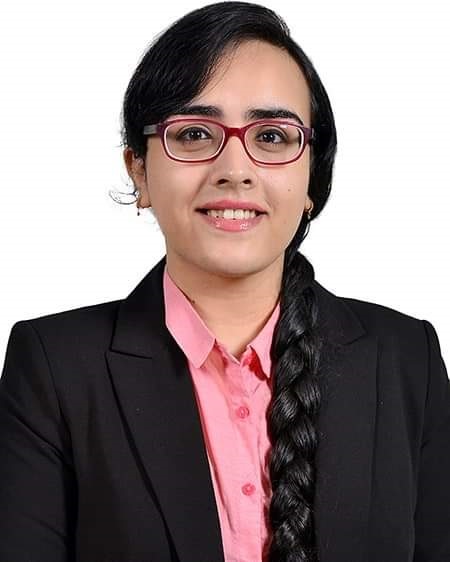The final year of medical school has brought about a drastic paradigm shift in our roles from students and learners of medical knowledge, to now almost-doctors who must apply the learned knowledge, make critical and time-sensitive clinical decisions and take full responsibility of relieving their patients of their suffering.
This was especially prominent in my Family Medicine rotation and as it draws to its end, I wanted to reflect over some positive experiences in these two months which have transformed me from an anxious, indecisive over-thinker to a confident clinician who can make the right decisions for her patients at the right time. I was truly blessed to have worked with such wonderful mentors who took the time out to guide me and shape my clinical decision-making thought process, who questioned me and constantly stimulated my mind, and who believed in me enough to steer almost the entire patient-doctor interaction the way I wanted.
One of the most valuable lessons I've learned is that practical medicine is not all black and white like it appears in medical textbooks; there is a lot of grey area which you only know how to deal with through clinical exposure. Medical knowledge will only get you so far; much of the outcome of the consultation depends on whether we listen to our patient carefully, whether we give them enough time and whether we validate their concerns instead of trivializing them.
 My favorite experiences have been when my patients specifically request to see me the next time they visit, and telling my attendings that even though they have come to the hospital numerous times, they particularly appreciated my thorough history taking and examination. and my reflective listening and giving sufficient time to the consultation.
My favorite experiences have been when my patients specifically request to see me the next time they visit, and telling my attendings that even though they have come to the hospital numerous times, they particularly appreciated my thorough history taking and examination. and my reflective listening and giving sufficient time to the consultation.
Last week was another huge personal victory for me when I drew blood for the first time. The sight of blood sometimes makes me light-headed and my hands shake a lot when I'm nervous. But I surprised myself when, despite fasting and standing in a poorly ventilated room, I went in with steady hands and successfully drew blood on the first prick without causing pain to the patient and without passing out. The next time I did it, I felt much more confident and handled the task with greater ease. At one point in third year my histories used to be very incomplete but now my attendings keep praising me for doing such a good job that they didn't have to put in any extra work to ask any further questions. Hence proven: practice really does make perfect.
Imposter syndrome is real, and there are a lot of moments when we feel inadequate or question our life choices and feel like we don't belong. But then there are some moments which re-affirm our faith in ourselves and reassure us that we are on the right track and that slowly, but surely, we'll get there. It's important to preserve these moments in our memory forever so that we can always look back and remind ourselves of the greatness that we are capable of. I'll conclude with my favorite quote of all time by Marianne Williamson:
"Our deepest fear is not that we are inadequate. Our deepest fear is that we are powerful beyond measure. It is our light, not our darkness that most frightens us. We ask ourselves, Who am I to be brilliant, gorgeous, talented, fabulous? Actually, who are you not to be? You are a child of God. Your playing small does not serve the world. There is nothing enlightened about shrinking so that other people won't feel insecure around you. We are all meant to shine, as children do. We were born to make manifest the glory of God that is within us. It's not just in some of us; it's in everyone. And as we let our own light shine, we unconsciously give other people permission to do the same. As we are liberated from our own fear, our presence automatically liberates others."
DISCLAIMER: Copyright belongs to the author. This blog cannot be held responsible for events bearing overt resemblance to any actual occurrences. The views expressed do not necessarily reflect the views and policies of CCIT or AKU.
About the Author

Laaibah Ejaz is a graduate of the Aga Khan University MBBS Class of 2019. She is an aspiring pediatrician who hopes to pursue residency training in the US. In her free time, she enjoys swimming, reading, and writing.

